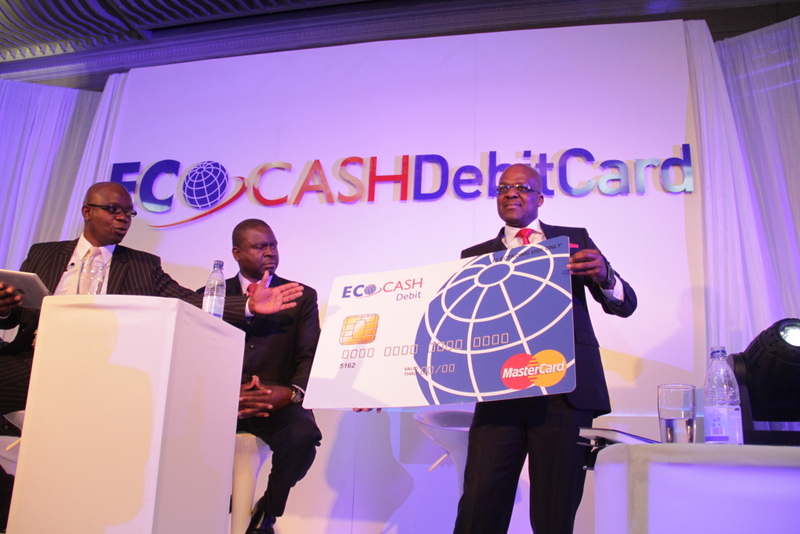With 96 percent of all transactions in Zimbabwe now being done on point-of-sale machines, mobile phones or through digital platforms, Zimbabwe is moving rapidly into what will be the norm for the 21st century.
The switch has been accomplished as Zimbabweans get around the shortage of banknotes and bond notes and merchants realise that they either lose business or accept new, modern forms of payment. There are now 70 000 PoS machines in use, with more still being issued.
Mobile phone operators have upgraded their technologies to allow far easier transactions and almost all banks are on the Zipit network and have commissioned technology that allows customers to move funds easily between their account and their mobile wallet.
There are still a few loose ends to ensure a totally seamless and cashless economy, but these can now be sorted out quickly. Most people still need coins for bus fare and to buy vegetables from vendors and pedlars, but coins are not in that short a supply and are not hoarded in large bags under beds, as banknotes and bond notes tend to be.
We need to remember the "cash crisis" that so many bemoan is not a shortage of cash. There are more than enough bond notes and bank notes in the possession of Zimbabweans to cope with all normal needs. The problem is that most holders of notes do not circulate these or use them to buy stuff. Banknotes are held as foreign currency and bond notes are hoarded as a cheaper way of buying banknotes. The cash shortage is in fact reflective of the foreign currency shortage.
A simple thought experiment could convince almost anyone. If Zimbabweans were offered the choice on one hand of a totally cashless economy, but allowed to use their bank accounts and mobile wallets to make foreign currency payments at will and on the other hand were allowed to draw banknotes or bond notes at will, but banned from taking these out of the country or making foreign payments it is obvious that everyone would choose the first option. People queue for cash not because they want bond notes to buy bread, but because they want to buy US dollar notes cheaply.
In this switch to digital and mobile money Zimbabwe is becoming a world leader, but we need to pause and note that the whole world is moving fast towards a similar economy. The inventor of the ATM is on record as saying he sees his invention as a purely interim technology and likely to be obsolete and unused within a decade or two as the world switches to digital money.
Almost every adult in the world and Zimbabwe is no exception, now has a mobile phone and with the smart phones falling in price the percentage of mobile users with such a phone is continually growing.
We have already reached the stage that a person who leaves the phone at home or has a flat battery simply cannot communicate with anyone. Older communication technologies from the postal services, telegrams, telex and faxes have just about been wiped out.
No one is discussing the "phone-box crisis", although TelOne no longer has any in use; no one is crying about the total collapse of phone shops, a flourishing business just 18 years ago; no one asks for fax numbers any more, preferring to use emails when long documents have to be moved.
For most people now their phone is also their wallet, often their security device and their communication device across a wide range of platforms. And no one is likely to want to return to the 20th century devices for all these functions.
Two small additions are needed in Zimbabwe to make a totally cashless society. We need a simple way of using a phone to make small payments, like 50c, to buy a kombi fare, a small bag of vegetables or even a newspaper. The fairly complex and time-consuming series of operations needed to make a mobile payment and these cannot be less than $1, are a nuisance and mobile operators need to have an addition that makes small payments possible and easy at a single tap, something people can do as they board a kombi for example.
The second addition is for the Reserve Bank of Zimbabwe to use its influence and muscle to ensure that all banks and mobile money operators have their systems all linked.
Rural phone users also would like to see the three networks entering into some sort of arrangement where they can back up each other's base stations.
Urban users can normally connect to more than one base station, so are not crippled by a fault, but rural users can face severe hardships unless some sort of emergency sharing can be implemented.
The cashless economy is the future around the world; within a few years banknotes will be like postage stamps, available for eccentrics and the odd person who might need one for a special reason (parcel senders are the only buyers in Zimbabwe), but almost all transactions done at the touch of a button on a phone.
And once the forex mess is sorted out, the demand for cash will be minute.
- the herald
 Concern over Masvingo black market
Concern over Masvingo black market  Kenya declares three days of mourning for Mugabe
Kenya declares three days of mourning for Mugabe  UK's Boris Johnson quits over Brexit stretegy
UK's Boris Johnson quits over Brexit stretegy  SecZim licences VFEX
SecZim licences VFEX  Zimbabwe abandons debt relief initiative
Zimbabwe abandons debt relief initiative  European Investment Bank warms up to Zimbabwe
European Investment Bank warms up to Zimbabwe  Young Investment Professional (YIP) Graduate Programme 2019
Young Investment Professional (YIP) Graduate Programme 2019 











 Young Investment Professional (YIP) Graduate Programme 2019
Young Investment Professional (YIP) Graduate Programme 2019
Editor's Pick